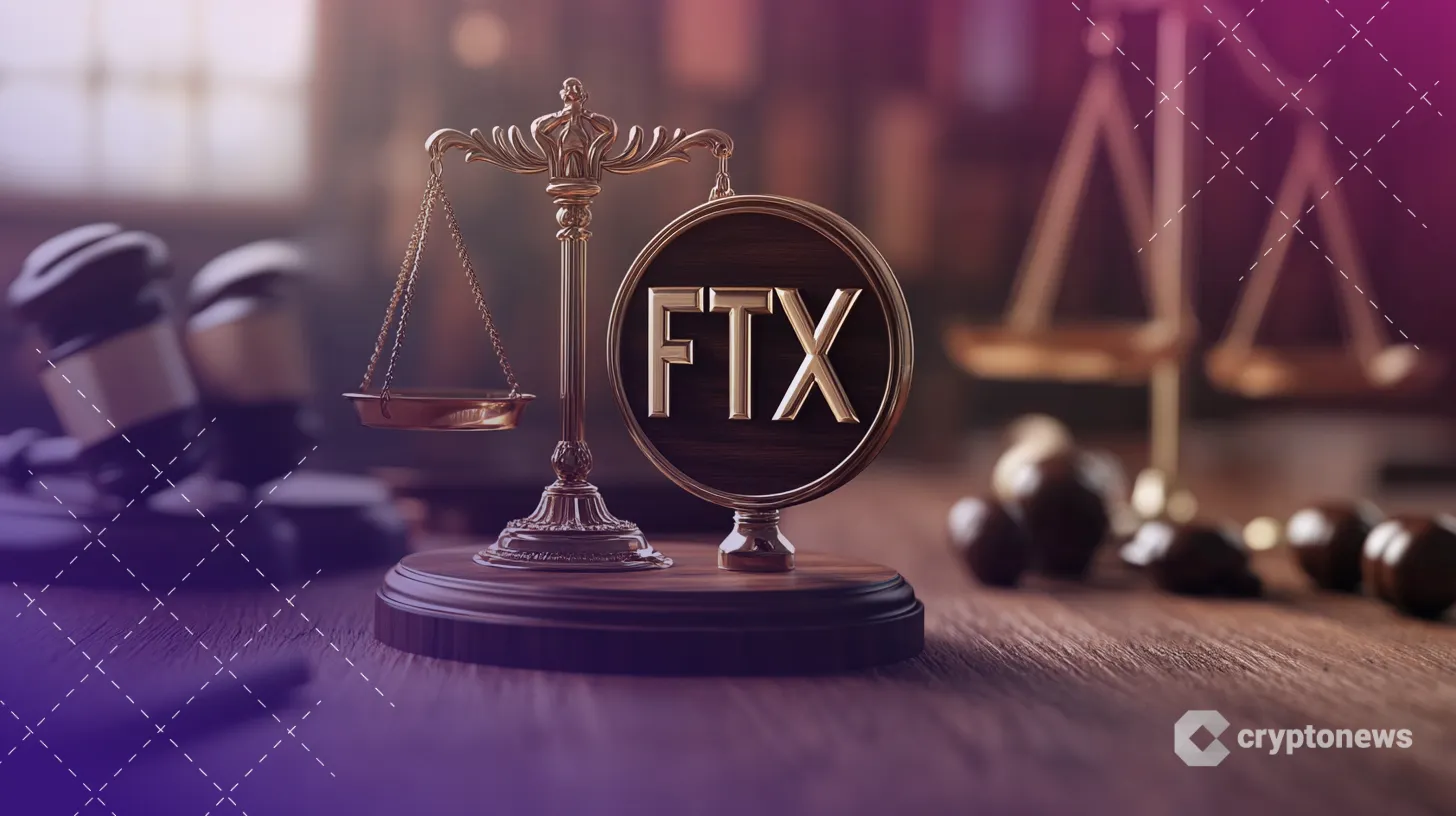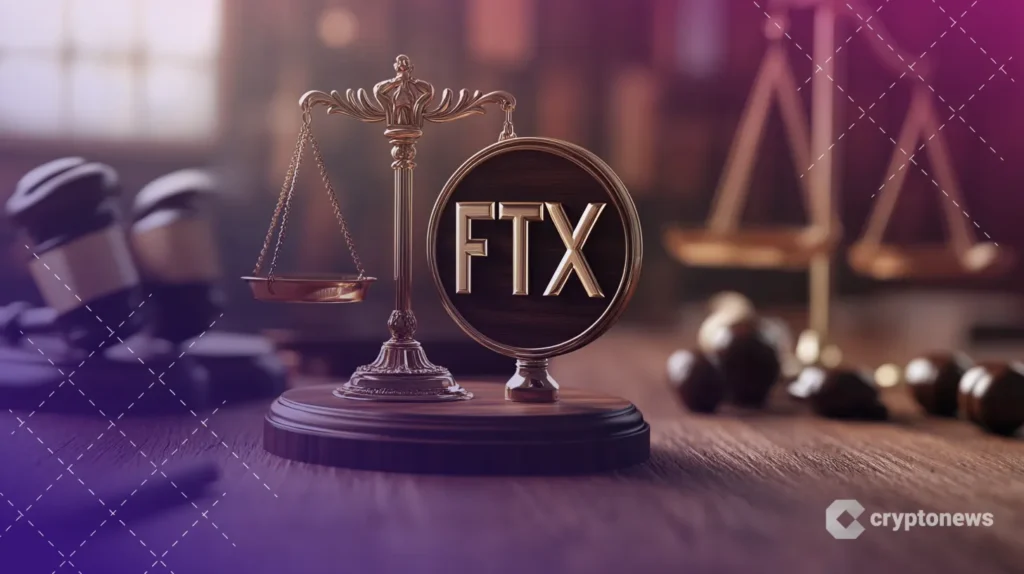
Defunct exchange FTX has filed a lawsuit against digital collectible marketplace NFT Stars and Kurosemi, the company behind the gaming platform Delysium, over a dispute involving undelivered tokens.
The FTX lawsuit claims both firms breached their investment agreements by allegedly failing to deliver the agreed-upon digital assets. FTX’s estate has also warned it may take similar legal steps against other issuers who refuse to cooperate.
When Digital Promises Become Legal Liabilities
According to a press release published on April 28, FTX advisors reportedly made multiple attempts to resolve the issue without litigation.
NFT Stars was contacted 15 times and Kurosemi 13 times between June 2023 and September 2024. Neither company responded meaningfully, forcing FTX to pursue legal remedies.
In the case against NFT Stars, FTX claims it paid $325,000 in November 2021 for rights to 1.35 million SENATE tokens and 135 million SIDUS tokens.
While some tokens were delivered initially, NFT Stars allegedly stopped transfers after FTX filed for bankruptcy.
For Kurosemi, Alameda Ventures (now Maclaurin Investments) paid $1 million in January 2022 for the right to receive 75 million AGI tokens. These tokens launched in April 2023 with a vesting schedule, but Kurosemi allegedly extended the schedule unilaterally and refused to transfer any tokens.
At press time, SENATE, SIDUS, and AGI tokens do not have major exchange listings.
Their value depends on issuer solvency and market adoption, both of which are uncertain due to ongoing litigation.
The latest FTX lawsuit represents an escalation in the bankrupt exchange’s efforts to recover assets for creditor repayments following its collapse in November 2022.
The collapse came after revelations that founder Sam Bankman-Fried misused $8 billion in customer funds. Bankman-Fried was convicted of fraud and conspiracy charges and sentenced to 25 years in prison.
He has been transferred to the low-security Federal Correctional Institution Terminal Island in Los Angeles.
The Importance of Time in Crypto Recovery Efforts
Under CEO John Ray III, FTX has recovered between $14.5 billion and $16.3 billion.
The first round of repayments, targeting smaller claims under $50,000, began in February 2025.
This explicitly includes those in FTX’s Convenience Class, which provides for claims under $50,000.
The next phase, starting May 30, will cover large claims.
FTX is now preparing for the second phase of repayments, which is based on a reorganization plan approved in late 2024.
This phase will kick off on May 30 and will cover larger claims, including customer and general unsecured claims.
FTX’s $11.4 billion cash reserve is expected to fund the upcoming creditors’ payouts.
The estate plans to ensure that 98% of creditors receive up to 119% of their original claim value.
However, some critics believe this figure doesn’t consider the huge rise in cryptocurrency prices since FTX’s collapse.
For instance, Bitcoin was trading around $17,000 at the end of November 2022. By January 20, 2025, it surged to an all-time high of over $109,000 before stabilizing at $95,000 as of April 29, 2025.
Given the massive price increases in the crypto market, creditors believe they should be compensated more fairly.
Can a U.S. Bill End Crypto Fund Mismanagement?
FTX’s litigation against NFT Stars and Kurosemi is part of its wide recovery efforts, which have extended to several institutions and prominent figures.
A case involves NBA legend Shaquille O’Neal, who reached a class-action settlement over claims he promoted FTX without disclosing key information.
The terms of the settlement deal remain private.
Other substantial recoveries include a $228 million settlement with crypto exchange Bybit to reclaim FTX-linked assets, and a $700 million lawsuit resolution with investment firm K5 Global.
These actions reflect how aggressively the FTX estate is working to recover funds and repay its creditors.
Meanwhile, the defunct exchange’s downfall sparked serious concerns about the lack of transparency in the crypto industry.
In response, U.S. lawmakers introduced a bill called the PROOF Act (Protecting Retail investors with Oversight of Funds).
This proposed law would require crypto exchanges to keep customer funds separate from their business or investment accounts.
Exchanges are also required to undergo monthly third-party audits, known as “Proof of Reserves,” to show they hold the funds they claim.
These measures seek to prevent the kind of risky behavior that led to FTX’s failure, especially its practice of mixing customer money with high-risk investments.
Frequently Asked Questions (FAQs)
Extended lockups prevent investors from selling during price swings. For instance, if AGI tokens are locked for 48 months, investors can’t exit even if the market crashes, leaving them vulnerable to losses. When tokens finally unlock, low liquidity on exchanges often leads to sharp price drops due to sudden sell-offs.
Yes, AI-driven smart contracts could automate token releases based on predefined milestones, such as game development stages. This would prevent issuers from unilaterally changing terms, ensuring fairness without lawsuits.
DEXs like Uniswap allow trading of illiquid tokens but often suffer from low liquidity, causing high slippage. For example, selling illiquid tokens like SENATE could crash their price. Regulatory risks also loom, as tokens like AGI might face unregistered securities claims if listed. While DEXs offer access, they often fail to provide stable price discovery for stranded assets post-collapse.
The post FTX Sues NFT Stars and Kurosemi over $1.3M Token Shortfall appeared first on Cryptonews.
https://cryptonews.com/news/ftx-sues-nft-stars-kurosemi-token-shortfall/


